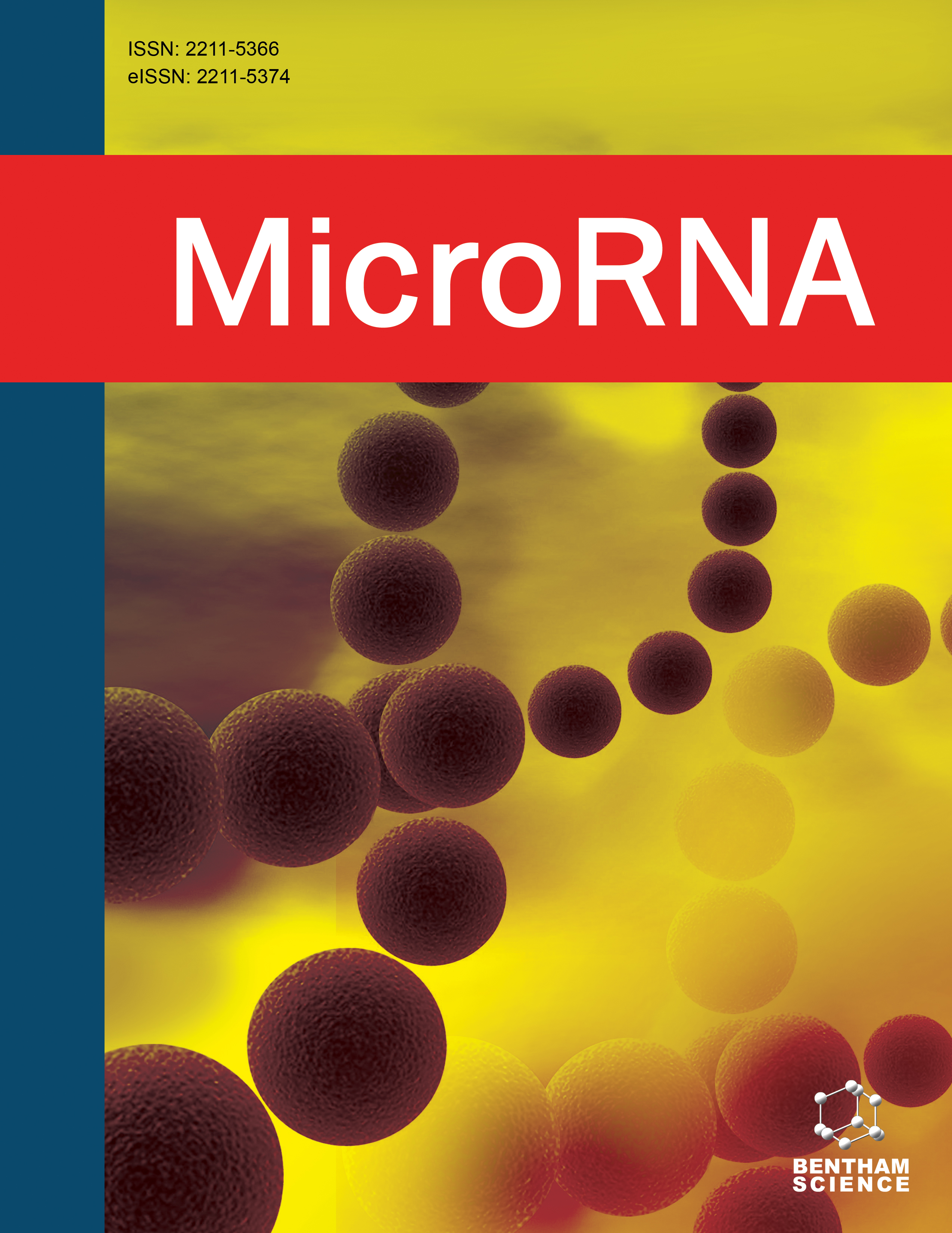-
s MicroRNA and HER2-overexpressing Cancer
- Source: MicroRNA, Volume 2, Issue 2, Aug 2013, p. 137 - 147
-
- 01 Aug 2013
Abstract
The discovery of microRNAs (miRNAs) has opened up new avenues for studying cancer at the molecular level, featuring a post-genomic era of biomedical research. These non-coding regulatory RNA molecules of ~22 nucleotides have emerged as important cancer biomarkers, effectors, and targets. In this review, we focus on the dysregulated biogenesis and function of miRNAs in cancers with an overexpression of the proto-oncogene HER2. Many of the studies reviewed here were carried out in breast cancer, where HER2 overexpression has been extensively studied and HER2-targeted therapy practiced for more than a decade. MiRNA signatures that can be used to classify tumors with different HER2 status have been reported but little consensus can be established among various studies, emphasizing the needs for additional well-controlled profiling approaches and meta-analyses in large and well-balanced patient cohorts. We further discuss three aspects of microRNA dysregulation in or contribution to HER2-associated malignancies or therapies: (a) miRNAs that are up- or down-regulated by HER2 and mediate the downstream signaling of HER2; (b) miRNAs that suppress the expression of HER2 or a factor in HER2 receptor complexes, such as HER3; and (c) miRNAs that affect responses to anti-HER2 therapies. The regulatory mechanisms are elaborated using mainly examples of miR- 205, miR-125, and miR-21. Understanding the regulation and function of miRNAs in HER2-overexpressing tumors shall shed new light on the pathogenic mechanisms of microRNAs and the HER2 proto-oncogene in cancer, as well as on individualized or combinatorial anti-HER2 therapies.


